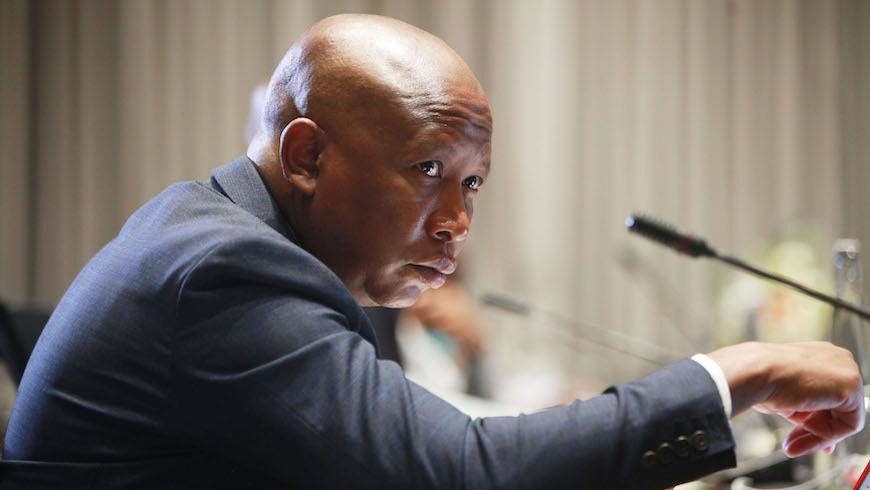Introduction
The Malema Appeal has once again moved into national focus as Julius Malema strengthens his legal team and prepares to challenge his 2009 firearm-related conviction. The long-standing case, tied to an incident where Malema allegedly discharged a firearm at a rally, has resurfaced during a moment of heightened political activity and public scrutiny. As South Africa moves through shifting political conversations, the appeal has become more than a standard legal proceeding. It now raises important questions about leadership responsibility, election eligibility, legal interpretation, and the broader expectations placed on public figures. With Malema’s team adopting a more strategic legal stance, this appeal is set to influence both public perception and future political direction. This article explores the most essential insights behind the Malema Appeal and the significance of this unfolding legal challenge.
Malema Appeal Strengthened by a More Strategic Legal Team
The Malema Appeal has gained renewed momentum with Julius Malema’s decision to reinforce his legal representation with specialists skilled in constitutional, criminal, and electoral law. This strategic move shows that Malema is approaching the appeal as a high-stakes process that could influence his long-term political standing. The incident in question, involving an alleged firearm discharge at a public gathering, remains central to the appeal. His team plans to challenge both procedural aspects and the interpretation of evidence used in the original conviction. The decision to expand his legal squad signals seriousness and intent, suggesting that Malema aims not only to overturn the conviction but to clear any doubts that could affect his public credibility. Political analysts view this upgraded legal strategy as a well-calculated step in anticipating future political developments.
Malema Appeal Raises Concerns Over Future Election Eligibility
A major point of interest surrounding the Malema Appeal is its potential impact on Malema’s ability to contest future elections. According to South African regulations, certain types of criminal convictions may affect eligibility for holding public office. If the original conviction stands, it could pose limitations on Malema’s political path, especially if future elections require strict screening for candidate suitability. This issue has triggered broader national debate about fairness, leadership standards, and the extent to which legal histories should influence political participation. Some commentators argue that politicians must remain fully accountable for past actions, while others believe that Malema is being subjected to disproportionate scrutiny for political reasons. As the appeal moves forward, its implications for democratic participation will remain a central concern.
Malema Appeal Rekindles National Debate on Firearm Laws
The Malema Appeal has revived discussions on South Africa’s firearm regulations and the responsibilities of public figures who own or handle firearms. South Africa enforces strict firearm laws intended to reduce crime and promote public safety. The alleged incident involving Malema led many observers to question whether public leaders should be held to even higher standards, given their influence and visibility. Supporters argue that the incident has been exaggerated and misrepresented, insisting that Malema did not intend harm. Critics counter that any firearm misuse at public events must be taken seriously to safeguard community trust. As legal teams revisit the details of the case, the national conversation on firearm responsibility continues to evolve, highlighting the tension between political activity and public safety expectations.
Malema Appeal and Public Perception During a Politically Sensitive Period
The Malema Appeal is unfolding during a period marked by heightened political activities and international visibility. With South Africa engaging in several diplomatic and political events, public attention around political accountability is more intense. The timing of the appeal has led some observers to question whether political factors are influencing public reactions or adding pressure to the process. While the legal proceedings should remain independent of political contexts, the increased scrutiny surrounding Malema’s case highlights how closely law and politics often intersect. Analysts note that the broader political environment may shape how the appeal is perceived, even though the courts are expected to focus solely on evidence and legal principles. The timing therefore brings an additional layer of complexity to an already controversial case.
Malema Appeal Sparks Discussion on Youth Leadership Standards
The Malema Appeal has reignited critical conversations about what qualities young South Africans expect from political leaders. Julius Malema has long been recognized as a youth-driven figure whose positions often challenge traditional norms. However, the resurfacing of the firearm-related case has raised questions about the behaviour expected of leaders who present themselves as representatives of younger generations. Supporters argue that transformative leaders often face legal and political resistance. Critics believe that leaders must demonstrate consistency, maturity, and adherence to the law. This renewed debate highlights the delicate balance between activism, personal conduct, and public leadership. The appeal continues to influence how young voters evaluate credibility, integrity, and responsibility within political movements.
Malema Appeal Reveals Deep Divisions in Public Opinion
Public reaction to the Malema Appeal remains divided, reflecting long-standing political differences within South African society. For some, the case is a matter of legal accountability that must be applied equally to all citizens. For others, it represents selective enforcement targeted at outspoken political figures. Social media discussions, public commentary, and opinion pieces reveal contrasting interpretations of the case. Supporters describe the appeal as an essential opportunity to correct an unfair conviction. Critics see it as a necessary test of legal standards that must be applied without political influence. These divisions reflect broader tensions between political loyalty, trust in institutions, and perceptions of justice. The outcome of the appeal will therefore have symbolic significance far beyond the courtroom.
Malema Appeal and the Role of Media in Influencing Narratives
The Malema Appeal has been widely discussed across traditional and digital media, highlighting the important role communication channels play in shaping public narratives. Different media outlets frame the case differently, with some focusing strictly on legal details and others emphasizing political context. These varied approaches influence how audiences interpret the seriousness and implications of the appeal. Coverage that includes legal analysis, historical context, and political commentary helps audiences understand the broader stakes involved. However, selective or sensational reporting can shift the conversation in ways that reinforce bias. For this reason, analysts emphasise the need for balanced and responsible journalism in cases involving high-profile political figures. Media portrayal will continue to shape how the public understands the appeal and its potential consequences.
Malema Appeal Raises Questions About Legal Interpretation and Fairness
A significant aspect of the Malema Appeal involves examining how the original firearm incident was interpreted within South Africa’s legal framework. Malema’s defence team argues that the actions attributed to him did not meet the legal requirements for a criminal conviction. They are expected to challenge the legal definitions applied, questioning whether the incident constitutes an offense under existing firearm legislation. Legal experts note that cases involving public events and political gatherings often require careful interpretation, as intention, context, and evidence can be interpreted in multiple ways. The appeal therefore provides an opportunity for courts to clarify how firearm-related matters should be judged, potentially influencing future legal precedents. A ruling in favour of Malema could reshape the application of firearm laws in similar cases.
Malema Appeal and its Wider Influence on South African Politics
Beyond its legal dimensions, the Malema Appeal continues to influence national political dynamics. As one of South Africa’s most visible political leaders, Julius Malema’s actions and legal battles attract significant attention. The appeal adds a new layer to ongoing discussions about political responsibility, public trust, and the standards expected from elected officials. The outcome will likely influence not only Malema’s political trajectory but the broader political landscape as well. A successful appeal may strengthen his credibility and energise his supporters. A failed appeal could introduce new limitations or challenges for his future participation in political affairs. Regardless of the outcome, the case highlights the ongoing process of evaluating leadership within a democratic society.
FAQs
What is the focus of the Malema Appeal?
It challenges Julius Malema’s firearm conviction and aims to overturn the original ruling.
Why does the Malema Appeal matter for elections?
The final decision may affect Malema’s eligibility to run for public office.
How has the Malema Appeal impacted public debate?
It has sparked discussions on firearm laws, political accountability, and leadership standards.
Conclusion
The Malema Appeal continues to shape legal, political, and public conversations across South Africa. As Julius Malema strengthens his defence strategy, the case has grown into a broader examination of leadership responsibility, public trust, and legal interpretation. The appeal’s outcome will not only affect Malema’s political future but also contribute to national debates on fairness, accountability, and democratic values. In the coming months, this case will remain a central topic influencing political dialogue and public perception.




